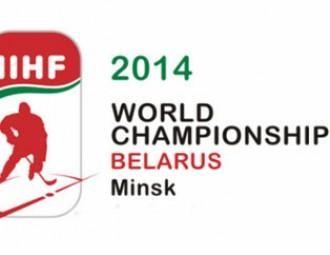On the threshold of Ice Hockey Championship in Belarus: visas, fines and registration

Terms of entry to Belarus for the period from 25 April until 31 May 2014, when the 2014 IIHF Ice Hockey World Championship is to take place, are too much complicated to expect an inrush of tourists.
There is every likelihood that a lot of people who want to visit Belarus would prefer buying a ticket for a hockey match to getting involved in paper chase in consulates. As Belsat reports, the cheapest tickets cost BYR 91,000 ($9.5, whereas visa may cost a considerable amount of money for foreigners: for example, a citizen of the UK might give € 535 for urgent examination of their visa application. The price for a single-entry visa usually ranges from € 25 to 117 depending on an applicant's home country. In addition, an applicant should be ready to take out insurance and provide all the documents needed. If there is no Belarusian consulate in a home country one stand the opportunity of getting a visa at Minsk-2 Airport (€ 90 – 350).
Hockey fans will not need a visa to enter Belarus during the World Ice Hockey Championship. They will only need to show their hockey tickets at the border. However, they should not show them to anyone else, Euroradio quotes Aliaksandr Tsishchanka, the head of the press service of the Border Committee: “There is a data base for all the tickets. Each ticket has its own unique code. You show us the code and there are no problems. However, if someone else shows us the same code afterwards, they will not be allowed to enter the country. That is why people should keep their codes a secret.”
Hockey fans should keep their tickets until the end – they will also need to show them to frontier guards on leaving Belarus. However, if you don’t have your ticket with you, “it will still be indicated that you came to the country with your ticket. Anything can happen, people lose things. We will try to avoid incidents. A lost ticket will only mean that the registration will be slower as it will need to be checked in the ticket data base”, - Aliaksandr Tsishchanka says.
There will be no other demands at the border. However, if foreign fans decide to rent a flat or stay at their friends’ instead of hotels, they will need to register at the Citizenship and Migration Department, Aliaksei Byahun, the head of the Department noted: “If they do not stay in a hotel, they will have to register in Belarus within 5 workdays.” However, according to the state official, “I do not think anyone will punish foreign fans if they do not register.”
At the same time, Belsat informs that if an unregistered foreigner has spent more than 5 days in Belarus they might be € 200 fined. Visiting most countries one is not obliged to register; that is why a lot of fans, remaining unaware of such procedure, are highly likely to neglect it.
Foreign journalist will not need visas for the championship either. They will not even need to be accredited in the Ministry of Foreign Affairs. They will only have to get accreditation in the International Ice Hockey Federation in advance, Maria Vanshyna, the representative of the Ministry of Foreign Affairs said. However, there are certain terms too: “Journalists planning to cover the championship will need to be accredited in the International Ice Hockey Federation.”
It means that journalists planning to cover other events on top of the hockey championship will need to be accredited in the Belarusian Ministry of Foreign Affairs.
-
03.01
-
07.10
-
22.09
-
17.08
-
12.08
-
30.09



























